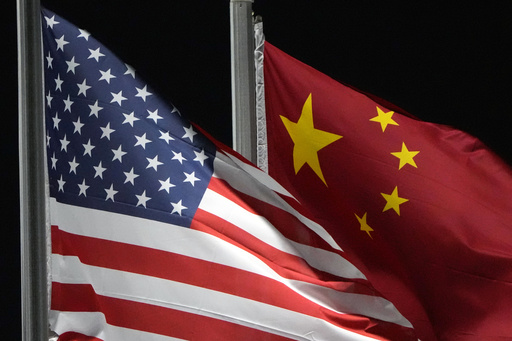Washington has recently updated its long-standing science and technology agreement with China, reflecting the increasing technological rivalry between the two nations. The new accord, finalized on Friday in Beijing after extensive discussions, features a more limited scope and enhanced security measures to safeguard national interests.
According to the State Department, the updated agreement preserves protections for intellectual property, introduces new guidelines to ensure the safety of researchers, and enhances U.S. interests with clearer provisions regarding transparency and data sharing. The agreement focuses exclusively on basic research and notably does not facilitate the creation of advanced and critical technologies, such as artificial intelligence and quantum computing, which are pivotal for both economic competitiveness and military power.
While China’s science and technology ministry confirmed the signing, it refrained from providing specifics or any commentary in its brief announcement. Earlier in the year, the Chinese foreign ministry suggested that such collaborative efforts are beneficial for both parties. The original agreement was established in January 1979, marking a time when the two nations sought to counterbalance Soviet influence amid China’s significant technological lag compared to the West.
The latest renewal comes after several temporary extensions in 2018 and 2022 to facilitate ongoing negotiations, as the U.S. has grown increasingly critical of the earlier framework, viewing it as no longer representative of the current state of U.S.-China relations. This updated agreement allows for continued collaboration for an additional five years.
In light of escalating tensions in the tech domain, the U.S. has implemented bans on the export of advanced semiconductors to China and limited American investments in specific technologies that may enhance China’s military capabilities. Following a program initiated during the previous administration aimed at curbing espionage, cooperation in academic and research sectors has significantly cooled. This initiative, which faced criticism for potentially enabling racial profiling, was ultimately dissolved in 2022 due to challenges in prosecuting alleged offenders.
Deborah Seligsohn, an assistant professor of political science at Villanova University, opined that while government-to-government projects may decrease under the new agreement, its carefully defined focus and heightened safeguards could still support collaborative efforts amid a more challenging geopolitical environment.
Earlier in the year, Congressman Andy Barr from Kentucky expressed concerns that longstanding cooperation had led to an unprecedented transfer of American scientific knowledge to Chinese scientists, which he deemed problematic. In contrast, Congressman Gregory Meeks from New York underscored the global benefits derived from such research partnerships, which have contributed to controlling diseases and enhancing our understanding of environmental issues. Nevertheless, Meeks advocated for greater congressional oversight to ensure that the projects undertaken under this agreement align with American values and interests.



